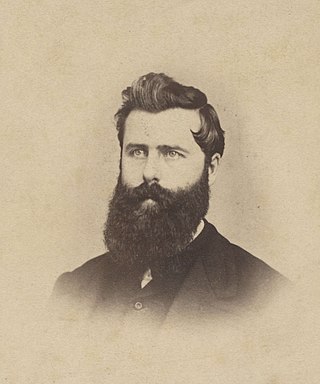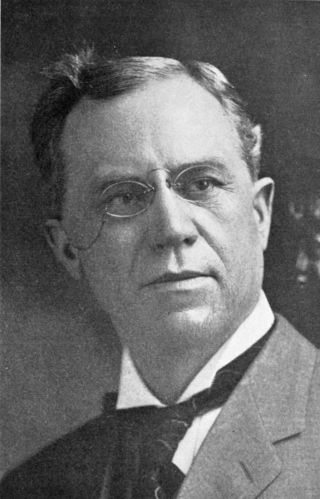
The Washington State Legislature is the state legislature of the U.S. state of Washington. It is a bicameral body, composed of the lower Washington House of Representatives, composed of 98 Representatives, and the upper Washington State Senate, with 49 Senators plus the Lieutenant Governor acting as president. The state is divided into 49 legislative districts, each of which elect one senator and two representatives.

The Oregon Legislative Assembly is the state legislature for the U.S. state of Oregon. The Legislative Assembly is bicameral, consisting of an upper and lower chamber: the Senate, whose 30 members are elected to serve four-year terms; and the House of Representatives, with 60 members elected to two-year terms. There are no term limits for either chamber.

The Kentucky General Assembly, also called the Kentucky Legislature, is the state legislature of the U.S. state of Kentucky. It comprises the Kentucky Senate and the Kentucky House of Representatives.

The 1912–13 United States Senate elections were held on various dates in various states. They were the last U.S. Senate elections before the ratification of the Seventeenth Amendment in 1913, establishing direct elections for all Senate seats. Senators had been primarily chosen by state legislatures. Senators were elected over a wide range of time throughout 1912 and 1913, and a seat may have been filled months late or remained vacant due to legislative deadlock. Some states elected their senators directly even before passage of Seventeenth Amendment. Oregon pioneered direct election and experimented with different measures over several years until it succeeded in 1907. Soon after, Nebraska followed suit and laid the foundation for other states to adopt measures reflecting the people's will. By 1912, as many as 29 states elected senators either as nominees of their party's primary or in conjunction with a general election.

The Arkansas State Senate is the upper branch of the Arkansas General Assembly. The Senate consists of 35 members, each representing a district with about 83,000 people. Service in the state legislature is part-time, and many state senators have full-time jobs during the rest of the year. During the current term, the Senate contains twenty-nine Republicans and six Democrats.

Joseph Norton Dolph was an American politician and attorney in the state of Oregon. A native of the state of New York, he immigrated to Oregon over the Oregon Trail and settled in Portland where he became the state's federal district attorney. A Republican, he spent nine years in the Oregon State Senate before serving in the United States Senate from 1883 to 1895.

Joseph Simon was a German-born politician and attorney in the U.S. state of Oregon. He was born in Bechtheim, Hesse, and his family immigrated to the United States when he was one year old, settling in Portland, Oregon. A Republican, Simon served on the city council before election to the Oregon State Senate. He was later elected to the United States Senate for one partial term, 1898 to 1903. He later served as mayor of Portland for one term, 1909 to 1911. He was also the first Jewish Republican senator.

Charles William Fulton was an American lawyer and politician in the state of Oregon. A native of Ohio, he grew up in Iowa and Nebraska before settling in Astoria, Oregon. A Republican, he served in the Oregon State Senate, including time as President of the Senate, before he was elected as United States Senator from Oregon.

John Newton Williamson was an American rancher and politician in the state of Oregon. A native Oregonian, he served in both chambers of the Oregon Legislative Assembly representing central and eastern Oregon in the late 19th century. A Republican, he then served in Congress from 1903 to 1907 and was involved in the Oregon land fraud scandal.

Henry Lamdin Benson was an American politician and jurist in the state of Oregon. He was the 44th justice of the Oregon Supreme Court, serving from 1915 to 1921 on the state's highest court. He was chosen as Speaker of the Oregon House of Representatives for the 1897 regular session of the 19th Oregon Legislative Assembly, but a dispute between two rival factions in the House prevented the body from organizing for that session. Henry's younger brother was Oregon Governor Frank W. Benson.

Oregon's Territorial Legislature was a bicameral legislative body created by the United States Congress in 1848 as the legislative branch of the government of the Oregon Territory. The upper chamber Council and lower chamber House of Representatives first met in July 1849; they served as the region's legislative body until Oregon became a state in February 1859, when they were replaced by the bicameral Oregon State Legislature.

The 1896–97 United States Senate elections were held on various dates in various states. As these U.S. Senate elections were prior to the ratification of the Seventeenth Amendment in 1913, senators were chosen by state legislatures. Senators were elected over a wide range of time throughout 1896 and 1897, and a seat may have been filled months late or remained vacant due to legislative deadlock. In these elections, terms were up for the senators in Class 3.

The 1898–99 United States Senate elections were held on various dates in various states. As these U.S. Senate elections were prior to the ratification of the Seventeenth Amendment in 1913, senators were chosen by state legislatures. Senators were elected over a wide range of time throughout 1898 and 1899, and a seat may have been filled months late or remained vacant due to legislative deadlock. In these elections, terms were up for the senators in Class 1.

The 1902–03 United States Senate elections were held on various dates in various states. As these U.S. Senate elections were prior to the ratification of the Seventeenth Amendment in 1913, senators were chosen by state legislatures. Senators were elected over a wide range of time throughout 1902 and 1903, and a seat may have been filled months late or remained vacant due to legislative deadlock. In these elections, terms were up for the senators in Class 3.

Virgil Conn was an American businessman and state legislator from the state of Oregon. He served two two-year terms in the Oregon House of Representatives as a Republican legislator, representing a large rural district in south-central Oregon. He also ran a general store in Paisley, Oregon, and was that town's postmaster for many years. Later in his life, he owned a dairy farm near Roseburg, Oregon.

The Forty-Third Wisconsin Legislature convened from January 13, 1897, to April 21, 1897, in regular session. They also convened in a special session from August 17 through August 20, 1897.

An election for the United States Senate was held by the Pennsylvania General Assembly beginning on January 17, 1899, to fill the seat then held by Matthew Quay for a six-year term beginning March 4, 1899. Quay was a candidate for re-election, but he was damaged by a pending indictment for involvement in financial irregularities with state money; his trial took place during the three months that the legislature attempted to resolve the Senate deadlock, and he was acquitted the day it adjourned, having failed to elect a senator. Quay was appointed to the Senate seat by the governor, but the Senate refused to seat him on the grounds that the governor lacked the constitutional authority to make the selection, and the seat remained vacant until the next meeting of the legislature, in 1901, when Quay was elected.

George Clayton Brownell was an American politician and attorney from Oregon City, Oregon. He was a conservative Republican who represented Clackamas County in both of Oregon's legislative chambers. He served three four-year terms in the Oregon State Senate and was senate president from 1903 through 1904. Brownell was defeated for re-election after he was implicated in a land fraud scheme. However, he was later exonerated when one of the convicted fraudsters admitted in court that he had forged Brownell's name on the incriminating documents without Brownell's knowledge or consent. Brownell remained very popular in Clackamas County throughout his life. He was elected mayor of Oregon City in 1910 and later served a two-year term in the Oregon House of Representatives.

William Kuykendall was an American politician and physician from Eugene, Oregon. He was a conservative Republican who represented Lane County in the Oregon State Senate. He served two four-year terms in the senate plus an extra year and was senate president from 1905 through 1906. Prior to being elected to the state senate, Kuykendall served as mayor of Eugene. He practiced medicine in Oregon for 56 years and was the founder of Eugene's first hospital. He also taught medicine at Willamette Medical College for several years.

Daniel James Malarkey, known as Dan Malarkey, was an attorney and politician from the state of Oregon. He served one two-year term in the Oregon House of Representatives followed by two non-consecutive four-year terms in the Oregon State Senate. Malarkey was a moderate Republican who represented Multnomah County in both chambers. He served as President of the Oregon Senate during the 1913 legislative session. Malarkey was known as a champion of progressive legislation including sponsoring Oregon’s first public utilities law and the state’s first minimum wage law that covered women. He was also one of the state’s most prominent attorneys for over 40 years. Malarkey actively opposed the influence of the Ku Klux Klan in Oregon. His legal efforts were successful in having a Klan-sponsored education bill declared unconstitutional, a decision that was ultimately upheld by the United States Supreme Court.




















